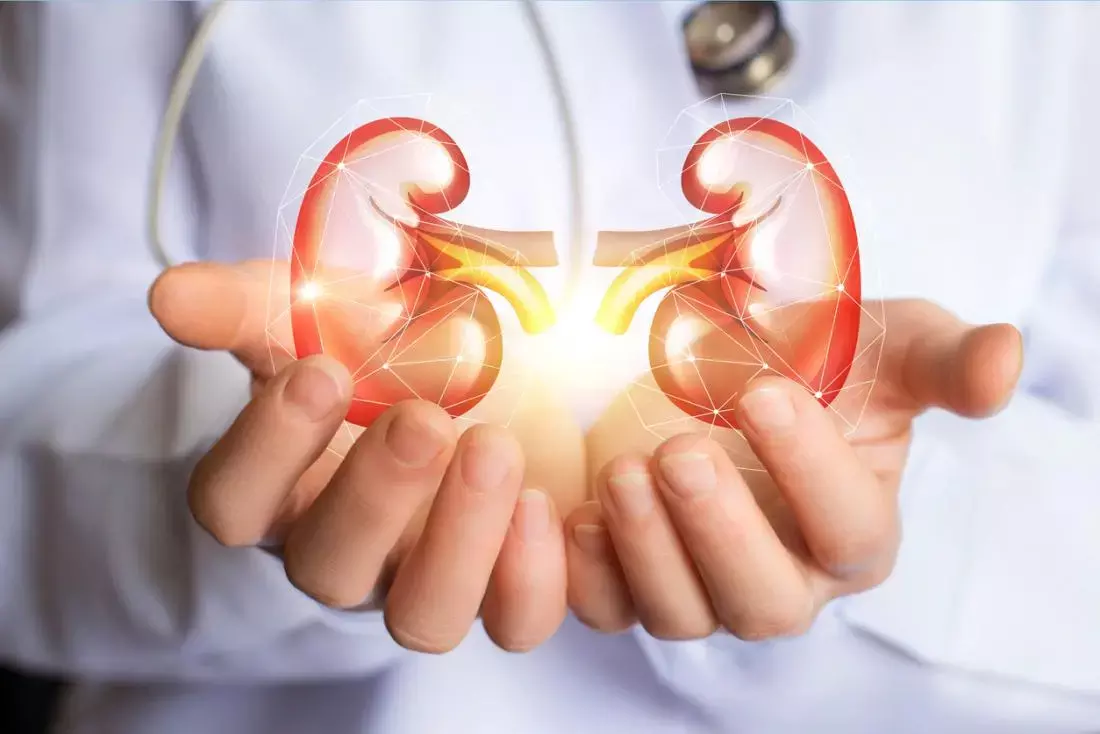- Home
- Medical news & Guidelines
- Anesthesiology
- Cardiology and CTVS
- Critical Care
- Dentistry
- Dermatology
- Diabetes and Endocrinology
- ENT
- Gastroenterology
- Medicine
- Nephrology
- Neurology
- Obstretics-Gynaecology
- Oncology
- Ophthalmology
- Orthopaedics
- Pediatrics-Neonatology
- Psychiatry
- Pulmonology
- Radiology
- Surgery
- Urology
- Laboratory Medicine
- Diet
- Nursing
- Paramedical
- Physiotherapy
- Health news
- Fact Check
- Bone Health Fact Check
- Brain Health Fact Check
- Cancer Related Fact Check
- Child Care Fact Check
- Dental and oral health fact check
- Diabetes and metabolic health fact check
- Diet and Nutrition Fact Check
- Eye and ENT Care Fact Check
- Fitness fact check
- Gut health fact check
- Heart health fact check
- Kidney health fact check
- Medical education fact check
- Men's health fact check
- Respiratory fact check
- Skin and hair care fact check
- Vaccine and Immunization fact check
- Women's health fact check
- AYUSH
- State News
- Andaman and Nicobar Islands
- Andhra Pradesh
- Arunachal Pradesh
- Assam
- Bihar
- Chandigarh
- Chattisgarh
- Dadra and Nagar Haveli
- Daman and Diu
- Delhi
- Goa
- Gujarat
- Haryana
- Himachal Pradesh
- Jammu & Kashmir
- Jharkhand
- Karnataka
- Kerala
- Ladakh
- Lakshadweep
- Madhya Pradesh
- Maharashtra
- Manipur
- Meghalaya
- Mizoram
- Nagaland
- Odisha
- Puducherry
- Punjab
- Rajasthan
- Sikkim
- Tamil Nadu
- Telangana
- Tripura
- Uttar Pradesh
- Uttrakhand
- West Bengal
- Medical Education
- Industry
Urinary Biomarker Can Predict Renal Injury in CKD Patients After Cardiac Procedure

Administration of iodinated contrast media (CM) during invasive cardiovascular procedures may be associated with impairment of kidney function. This complication is most often acute, a condition usually named contrast-associated acute kidney injury (CA-AKI). In a recent study, researchers have discovered a biomarker that can predict CA-AKI and renal dysfunction in patients with Chronic Kidney Disease (CKD) after cardiac procedures. The study findings were published in the Journal of the American College of Cardiology on June 01, 2021.
Several biomarkers of AKI have shown diagnostic and prognostic value. Urinary dickkopf-3 (DKK3) is a stress-induced, renal tubular epithelium-derived, secreted glycoprotein that induces tubulointerstitial fibrosis through the activation of the canonical Wnt/β-catenin signalling pathway. DKK3 has been identified as a biomarker predicting chronic kidney disease (CKD) progression. In this present study, Dr Giuseppina Roscigno PhD and her team conducted a study to assess the diagnostic usefulness of baseline uDKK3/uCr to predict CA-AKI and persistent kidney dysfunction after CM exposure; and compared baseline uDKK3/uCr with other proposed biomarkers, that is, sCyC, uNGAL, and sNGAL, in predicting the above outcomes.
In this observational study, the researchers included a total of 458 patients with chronic kidney disease scheduled for invasive cardiovascular procedures requiring CM administration with universal adoption of nephroprotective interventions. They assessed the urinary DKK3/creatinine ratio (uDKK3/uCr), urine and serum neutrophil gelatinase-associated lipocalin (uNGAL, sNGAL) and serum cystatin C (sCyC) in 458 patients. They determined CA-AKI as serum creatinine increase ≥0.3 mg/dl at 48 h after CM administration and Persistent kidney dysfunction as persistent estimated glomerular filtration rate reduction ≥25% at one month compared with baseline.
Key findings of the study were:
- Among 458 patients, the researchers identified CA-AKI in 64 patients (14%) and noted that baseline uDKK3/uCr ≥491 pg/mg was the best threshold for its prediction.
- They found that net reclassification improvement (NRI) was significantly increased by adding baseline uDKK3/uCr to the Mehran, Gurm, and National Cardiovascular Data Registry (NCDR) scores.
- They also found similar findings for the integrated discrimination improvement (IDI) when adding uDKK3/uCr to the Gurm and NCDR scores.
- They identified 57 patients with persistent kidney dysfunction (12%) and noted that baseline uDKK3/uCr ≥322 pg/mg appeared as the best threshold for its prediction.
- They also noted that adding baseline uDKK3/uCr to the Mehran, Gurm, and NCDR scores significantly increased IDI and NRI.
The authors concluded, "Baseline uDKK3/uCr seems to be a reliable marker for improving the identification of patients with chronic kidney disease undergoing invasive coronary and peripheral procedures at risk for AKI and persistent kidney dysfunction."
For further information:
Giuseppina Roscigno PhD et al., Urinary Dickkopf-3 and Contrast-Associated Kidney Damage, 2021-06-01, Volume 77, Issue 21, Pages 2667-2676.
Dr Kartikeya Kohli is an Internal Medicine Consultant at Sitaram Bhartia Hospital in Delhi with super speciality training in Nephrology. He has worked with various eminent hospitals like Indraprastha Apollo Hospital, Sir Gangaram Hospital. He holds an MBBS from Kasturba Medical College Manipal, DNB Internal Medicine, Post Graduate Diploma in Clinical Research and Business Development, Fellow DNB Nephrology, MRCP and ECFMG Certification. He has been closely associated with India Medical Association South Delhi Branch and Delhi Medical Association and has been organising continuing medical education programs on their behalf from time to time. Further he has been contributing medical articles for their newsletters as well. He is also associated with electronic media and TV for conduction and presentation of health programs. He has been associated with Medical Dialogues for last 3 years and contributing articles on regular basis.
Dr Kamal Kant Kohli-MBBS, DTCD- a chest specialist with more than 30 years of practice and a flair for writing clinical articles, Dr Kamal Kant Kohli joined Medical Dialogues as a Chief Editor of Medical News. Besides writing articles, as an editor, he proofreads and verifies all the medical content published on Medical Dialogues including those coming from journals, studies,medical conferences,guidelines etc. Email: drkohli@medicaldialogues.in. Contact no. 011-43720751


